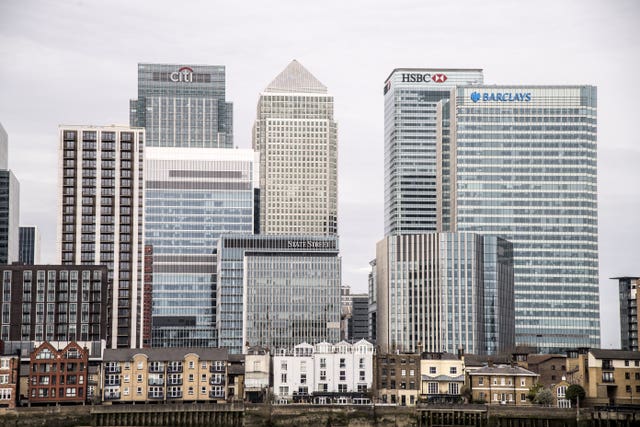Full-time return to work unlikely for more than one million staff
New research has found that the vast majority of big businesses will adopt a hybrid working model in the future.

Companies which between them employ more than one million workers in the UK have told staff they will no longer be expected to return to the office five days a week, according to new research.
Bosses at 50 of the UK’s biggest businesses were asked whether they will be demanding employees return to the office full-time but 43 said they would embrace a hybrid model of two or three days working from home.
The research by the BBC comes after several big-name organisations have already declared plans to downsize office space and no longer require staff to be at their desks full-time.
Government guidelines currently state that people who can work from home are still advised to do so.
Mark Read, chief executive of advertising firm WPP, told the BBC: “We’re never going to go back to working the way we used to work.
“People are working from home three to four days a week so we probably need 20% less space, but we’re not going to do that if everyone’s working from home on Mondays and Fridays.”
The research also found 95% of insurance giant Aviva’s 16,000 UK workforce are working flexibly and recruiter Adecco now has fourth-fifths of its 34,000 staff working remotely.
Investment firm JP Morgan and recruiter Michael Page said workers have been allowed to return to offices from March 29, whilst Adecco, recruiter Hays Group and WPP reopened their offices on April 12.

Investment firm Rathbones has allowed employees to return “if they wish”, subject to a 25% capacity, and WPP reopened its UK offices at 30% capacity – increasing to 50% this month.
In March, former Bank of England deputy governor Sir Charlie Bean told the PA news agency he expects firms to adopt a permanent flexible model after the pandemic.
He said at the time: “Not everyone will be working a nine-to-five, five days a week and that, in effect, will change the way metropolises like London operate.
“We won’t have rigid commuting times… we’ll see an evolution of the city to reflect that.”
Other corporate giants – including British Gas owner Centrica, NatWest Group and outsourcer Capita – have also all confirmed they will move their workforces to hybrid working.
HSBC is closing down its executive floor at its Canary Wharf head office, with chief executive Noel Quinn declaring that flexible working is likely to stay, and last week Barclays revealed it is carrying out a review into its own office space.
In the US, bosses have been more forthright in their attempts to get employees to return to offices, with Goldman Sachs telling staff they are expected at their desks.
And some business leaders insist that creativity is put at risk by remote working arrangements, although lower-paid workers have said they enjoy the savings from less commuting.
The full list of companies approached by the BBC is:
Adecco Group, Ageas, Airswift, Allianz, Amazon UK, Anglian Water, Aviva, BBC, BDO, Britvic, BT, Capita, Centrica, Civil Service, Deloitte, Eon Energy, Facebook, Grant Thornton, Hargreaves Lansdown, Hastings, Hays, HomeServe, John Lewis, JP Morgan, Just Eat, Legal and General, Lloyds Bank, London Stock Exchange, LV, McLaren, Michael Page, NatWest, Octopus Energy, Pearson, PKF, Purple Bricks, Quilter, Rathbones, Reach, RSM, Sage Group, Schroders, SSE, Standard Life Aberdeen, Thames Water, Welsh Water, Wilko, WPP, Yorkshire Water, and Zurich.





